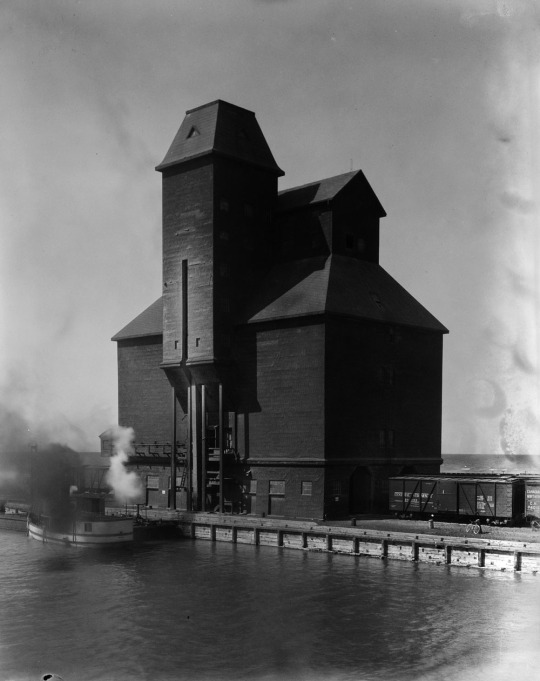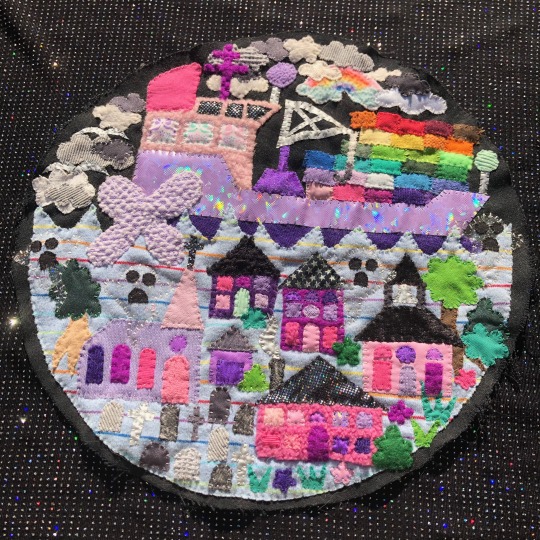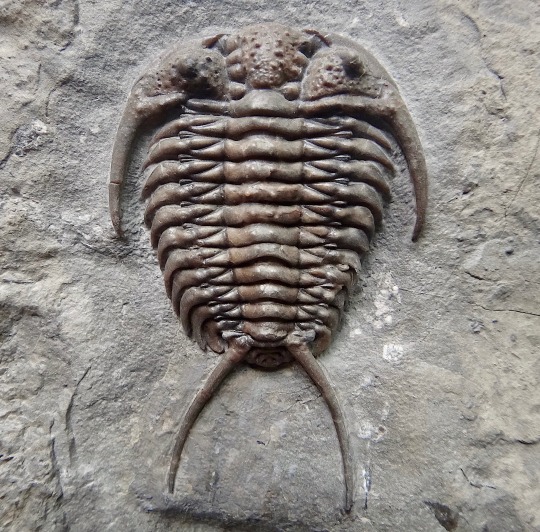#ontario history
Explore tagged Tumblr posts
Text



King Street Buildings (2023)
a piece about buildings in my hometown (prescott, ontario)
watercolour, acrylic, gel pen, bugs, beads, rhinestones, sequins and other things on canvas
24 x 24 inches
#art#my art#queer artist#mixed media art#mixed media#painting#gel pen#watercolor#watercolour#watercolour painting#watercolor painting#acrylic#acrylic on canvas#prescott ontario#ontario#ontario history#uv#fluorescent#uv reactive
30 notes
·
View notes
Text
"After beverage rooms opened in Ontario in 1934, the Board followed up with the further regulatory conditions concerning dancing and "ladies nights." The "ladies and escorts" sections "typically took up half of the beverage-room area, had their own entrances and washroooms, and were heavily patronized from the beginning."
Even so, the very presence of women within drinking establishments in combination with unmarried men prompted a moral outcry against the potential impropriety inspired by this mixed drinking within the male beverage rooms. In response in 1937 the LCBO drafted beverage regulations requiring licensed establishments to have "two separate and distinct beverage rooms one for men only, and the other solely for women, except where attended by bona fide escorts.” (Globe and Mail, 1937)
This regulation also applied to female servers, who contested their restriction from serving liquor within the "men only" beverage room. In repeated communications the Board stressed its strong opposition against women servers, denying women the right to work within these establishments even if they owned them or were wives of the owners. In 1944 the Board partially yielded on the matter, explaining to authority holders that they could "make use of females as waitresses in the Ladies' and Escorts' beverage room ONLY" (LCBO 1944). LCBO policy required that "authority holders desiring this privilege" within the Ladies and Escorts room to have female servers working "must make application to the Board as well as submit a medical certificate covering the proposed employee and indicating that she is free from disease" (ibid.). Having these women in male beverage rooms apparently "raised fears about prostitution, immorality and venereal disease" within anti-beverage room discourses (Marquis 2004:316; Globe 1934b; Ontario Provincial Council of Women 1944). Male servers, in contrast, were not held to this medical standard. The transfer of principle, then, was based not on exclusion, but instead on inclusionary segmentation of the space in which alcohol circulated. It continued in Ontario until the responsibility of controlling these establishments was shifted away from the LCBO and the opening of mixed "Cocktail Lounges" targeted a more temperate middle-class clientele in 1947 (Marquis 2004: 317).
Women could, of course, drink within their homes. Yet in the Board's early years even there some female drinkers who were the subject of gossip and public criticism, On the LCBO's opening day in 1927 the Globe reported on women purchasers as if they were spectacles for public consumption. Articles were critical of women who "wheeled baby carriages" when making their purchases, or of women who were assertive of their right to drink openly and questioning their ability to both drink and be effective mothers (Globe 1927h). Moreover, discourses surrounding alcoholism and motherhood in the late 1930s expressed fears over a scientifically underdeveloped and fear-based understanding of what would later become known as fetal alcohol syndrome. At a WCTU convention in 1937 a speaker expressed “science claims that alcoholic mothers give to the world either a prostitute or a delinquent, when she does not give an epileptic, an idiot or a lunatic.”
During the Board's early years many women also avoided taking out a permit of their own for fear of being stigmatized - a tendency that again increased the degree to which female gender performances concerning alcohol were mediated by male figures within their lives. When it came to Board policy, the identity of women's husbands or fathers was integrated into the purchase process: the occupations and sometimes names of these men were included on female permits, acting as the lenses through which cases of misspending and overindulgence were viewed.
Unlike men's clubs and legions, which had no trouble obtaining licenses and served as a means by which men could resist Board control over their drinking spaces, women's clubs were denied this privilege…this "issue blew up first in 1935 when the Germaine Club, which had always had a mixed membership, was ordered to stop serving beer to women." The Board held firm to its decision. It disallowed not only women in uniform from drinking but also the gender-exclusive woman's auxiliary equivalents of male clubs."
- Gary Genosko and Scott Thompson, Punched Drunk: Alcohol, Surveillance and the LCBO 1927–1975. Winnipeg and Halifax: Fernwood Press, 2009. p. 152-153
#liquor control board of ontario#lcbo#ladies night#liquor control#interdiction list#government machine#war on alcohol#punched drunk#academic quote#reading 2023#ontario history#patriarchal authority#unruly women#regulation of morality#controlling women#women's clubs
4 notes
·
View notes
Text








Muskoka Lakes boat tour aboard the Wenonah II, Ontario Heritage Conference Gravenhurst//June 2024
#ontario#canon photography#original photography#muskoka#muskoka lakes#wenonah II#boat tour#ontario history#gravenhurst#canon canada#lakes#on the water#ontario heritage conference
5 notes
·
View notes
Text

Prepping breakfast in a snow hole.
Algonquin Provincial Park, Ontario
1973
#vintage camping#campfire light#history#algonquin park#camping#hiking#travel#ontario#kandalore#winter camping#1970s
1K notes
·
View notes
Text



Riding Habit
c.1770-1780
England
Royal Ontario Museum (Object number: 2013.17.3.1)
#riding habit#fashion history#historical fashion#1770s#georgian#england#united kingdom#18th century#wool#red#royal ontario museum
777 notes
·
View notes
Text

Title: "I am half sick of shadows," said the Lady of Shalott Artist: John William Waterhouse (English, 1849-1917) Date: 1915 Genre: Arthuriana; literary painting (based on the poem "The Lady of Shalott" by Alfred, Lord Tennyson) Movement: Pre-Raphaelite Brotherhood Medium: oil on canvas Dimensions: 100.3 cm (39.4 in) high x 73.7 cm (29 in) wide Location: Art Gallery of Ontario, Toronto, Ontario, Canada
#art#art history#John William Waterhouse#literary painting#illustration#Tennyson#Alfred Lord Tennyson#Lady of Shalott#Arthuriana#Arthurian legend#Pre-Raphaelite#Pre-Raphaelite Brotherhood#pre-raphaelisme#British art#English art#20th century art#oil on canvas#Art Gallery of Ontario
292 notes
·
View notes
Photo

The Windsor Star, Ontario, June 26, 1925
3K notes
·
View notes
Text
Oh, you’re from Ontario, Michigan, Wisconsin, or Minnesota? Okay, tell me where the love of God goes when the waves turn the minutes to hours.
#gordon lightfoot#edmund fitzgerald#ontario#canada#great lakes#great lakes region#lake superior#michigan#wisconsin#minnesota#behind every canadian is a deep history with this song#and people from the great lakes region of the us too i'm assuming although it is a canadian song
1K notes
·
View notes
Text

Grain elevator at Collingwood, Ontario. Like a big spooky house.
(Library and Archives Canada)
954 notes
·
View notes
Text
Black History Month 2025 is right around the corner, and to celebrate, one mall in Toronto is set to host a pop-up market featuring unique goodies from dozens of BIPOC-owned small businesses. The Trending Table is on the cutting edge in Toronto when it comes to hosting unique vendor markets across the city, and things are only ramping up for them. Founded by Kana Nagai and Martina Willis, The Trending Table was founded in 2021 with the aim of promoting the city's small business community, and for the past four years, that's exactly what they've done: taking over venues like Stackt Market, Square One and Scarborough Town Centre with their uniquely curated markets.
Continue reading
Tagging: @newsfromstolenland
#black history month#malls#vendors#black vendors#cdnpoli#canada#canadian politics#canadian news#canadian#ontario#toronto
69 notes
·
View notes
Text


Two appliqué projects I did about the St. Lawrence Seaway/The Lost Villages.
Top one is based on the Lost Villages Historical Society logo, bottom is based on a photograph by George Hickey taken in Aultsville, Ontario just before the flooding of the Seaway.
#aultsville#aultsville ontario#st. lawrence river#st lawrence seaway#saint lawrence seaway#saint lawrence river#ontario history#the lost villages#canadian history#appliqué#applique#fibre arts#fibre crafts#textile art#textile arts#textiles#fiber art#my art#my artwork#artists on tumblr#queer artist
25 notes
·
View notes
Text
"Investment in railroads helped more than anything else to open up northern resources to southern capital and entrepreneurship. On railroads, the province spent prodigously, George Ross often boasted that under Liberal governments railroad mileage in New Ontario had risen from a mere 12 miles in 1881 to almost 1,750 in 1904. The impulse was so strong and the Liberal commitments so binding that even under reduced assistance from the subsequent Conservative governments new construction proceeded with abated enthusiasm at a rate of 300 miles per year. Rare indeed a line was built without a provincial subsidy, bond guarantee. and grant; some obtained all three! Between 1867 and 1914 the province aided the construction of 2,783 miles of track the extent of $7,969,406 and pledged at least that much s credit again in support of various railroad bond issues. her and above their cash subsidies, Mackenzie and Mann floated a $5 million bond guarantee from the province and owned more than three million acres of crown land in support of the Canadian Northern. An equally persuasive F. H. Clergue convinced the Ross government to increase the usual 5,000 acre per mile grant to 7,400 acres for his Algoma Central line and to throw in the timber and mineral rights which usually remained vested in the crown. Clearly the provincial government could assume no responsibility for the transcontinentals, but it could claim the initiative for three north-south lines (the Northern, the Algoma Central and the Temiskaming and Northern) which, as it turned out, were much more important factors in the industrialization of the north.
These "development roads," and especially the Temiskaming and Northern Ontario, exposed the north both physically and psychologically to the energies of the Toronto business community. By the end of the nineteenth century Toronto had firmly established itself as the pre-eminent regional metropolis of southern Ontario, organizing and financing the trade and commerce of a prosperous, agricultural hinterland. Rail penetration of the Canadian Shield necessarily expanded that hinterland and changed its character. At first the railroads were driven northward simply to tap new agricultural areas to the north and west, but the incredibly rich silver and gold deposits unearthed by railroad construction redirected attention to the much greater opportunities presented by the natural resources of the Shield. Railroads thus brought the Shield under the dominance of Toronto, which developed in response the techniques, facilities and in a sense the energies to finance resource industries, especially mining, with a vigour that Montreal, for some reason, seemed to lack. Toronto's initial advantages of transportation and experience on the Canadian Shield imparted a powerful thrust to its rise from regional to national metropolitan stature. Indeed, as Professor Careless has observed in this connection, the "successive opulent suburbs of Toronto spell out a veritable progression of northern mining booms."
Much of the credit for initiating this mutually profitable relationship must rest with Ontario governments of this time, which in addition to extending the normal generous subsidies to private railroad companies, intervened even more positively to build and operate as a state enterprise the strategically important Temiskaming and Northern Ontario Railway. Without a transcontinental of its own, the Toronto business community seized upon a railroad to Hudson Bay as a cheap and ready, if not entirely rational, substitute. En route to tidewater, so it was argued, the railroad would necessarily expand the city's agricultural hinterland, and by offering a third outlet to Europe, the northern seaport would reduce Toronto's dependence upon Montreal and New York. One promoter actually proposed that a Hudson Bay railroad in conjunction with northwest passage shipping company would make Toronto the headquarters for the Klondike. In due course Hudson Bay became a self-justifying symbol of Ontario manifest destiny and metropolitan commercial ambition. Although several such themes were projected with the usual civic éclat, each failed considerably in accomplishment; the James Bay Railroad managed reach only as far as Parry Sound, and the Toronto and Hudson Bay, among others, remained gloriously stillborn.
Eventually both Toronto businessmen and northern resource promoters turned to the provincial government for help. Taking an "average business man's point of view with no axe to grind," John Bertram told the Toronto Board of Trade 1901 that it was both necessary and sensible that the state should build the northern railways. "The chief thing to be considered was transportation," he said, "and the government would be lacking (land grants) in its duty, to give away such a rich inheritance to any railroad corporation." On January 15,1902, just on the eve of an important provincial election, the Ross government introduced a bill to build a railway from North Bay into the Temiskaming district which, it hoped, would give access to the vast arable lands of the Clay Belt discovered only two years earlier, extend the operations of the lumbering industry and expose, in the Minister of Public Works' prophetic words, "deposits of ores and minerals which are likely upon development to add greatly to the wealth of the province Announcement of the planned intersection of the Ontario go ernment line with the National Transcontinental gave Toronto at long last, its national connections. "I believe it [the T. & N. O.] will prove of inestimable value," J. F. Ellis remarked in his presidential address to the Toronto Board of Trade "in developing and settling the fertile wheat lands of New Ontario and the West-lands that are now practically valueless because of the want of railway facilities. Ontario and particularly Toronto, will be the great gainers." But on their way to Hudson Bay and the West, Toronto businessmen suddenly discovered the Canadian Shield. The T. & N. O. and Cobalt taught Toronto to see its new northern hinterland in its own terms."
- H. V. Nelles, The Politics of Development: Forests, Mines & Hydro-Electric Power in Ontario, 1849-1941. Second Edition. McGill-Queen’s University Press, 2005 (1974), p. 117-120
#ontario history#railway construction#railway capitalism#temiskaming and northern ontario railroad#resource extraction#resource capitalism#birth of natural resources#h. v. nelles#reading 2023#academic quote#settler colonialism in canada#crown lands#developmental politics#northern development#northern ontario#colonization roads
3 notes
·
View notes
Text






Oxford County Gaol, built 1854. Woodstock, ON April 2023
#ontario#ontario history#oxford county gaol#landmarks#road trip#original photography#gaol#woodstock#architecture#explore ontario
1 note
·
View note
Text

It’s time for another Trilobite Tuesday! Pictured is a 2-in- (5-cm-) long Ceraurus mantranseris. This well-preserved specimen was found in southern Ontario.
#science#amnh#museum#fossil#nature#natural history#animals#paleontology#trilobite#trilobite tuesday#did you know#fact of the day#ordovician#ontario
327 notes
·
View notes
Text

A couple fellas are in for a rough morning after a night of drinking and star watching.
Ontario
1961
#vintage camping#campfire light#ontario#vintage#black and white photography#history#drinking#sleeping under the stars#camping#1960s
231 notes
·
View notes
Text


Knitted Jacket
1630-1650
Italy
Royal Ontario Museum (Object number: 2007.28.1)
#knitwear#fashion history#historical fashion#1630s#1640s#1650s#17th century#red#yellow#silk#italy#royal ontario museum#look at those tiny ass bound buttonholes#i guess technically they're for lacing and not buttons#BUT STILL
437 notes
·
View notes